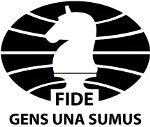How to Improve at Chess or at Any Hobby?
by Ilker Pazarcioglu
FIDE EDU Commission
This article is mainly for adults who have a passion for a hobby and want to improve in that hobby. I used chess as an example, but the principles can be applied to any hobby or interest. Whether you’re a musician, painter, or avid reader, the principles of dedication, effort and planning are universal.
First and foremost, if you truly want to advance in chess or any field of interest, you need to say no to many things that will consume your attention and energy because your time is limited. If you don’t focus on the subject matter that will genuinely contribute to your progress, you won’t make headway. For example, trying to read multiple sources simultaneously, watching videos of various chess openings on chess websites, and playing games at a very fast pace will scatter your focus, and you won’t make any progress. You’ll waste your most valuable resource, which is time.

In chess, progress is not a sprint, but a marathon. Like in life, if you want to succeed in chess, you need to be willing to put in the time and effort to develop your skills. If you don’t plan and prioritize your time, someone else will. So, my recommendation would be to create a weekly plan with dedicated time for chess practice. Progress won’t happen overnight, but if you’re consistent, you’ll see the results.
When allocating time for chess, you should focus on these areas:
Tactical Practice:
For amateur players like us, tactics are the most important aspect of chess. In chess, tactics refer to a series of moves that provide an advantage. According to the 20th-century German chess player Richard Teichmann, “Chess is 99% tactics.” An interesting fact: according to the book “The Woodpecker Method” by Alex Smith and Hans Tikkanen, 42% of grandmaster-level games and 72% of games between players rated 1800-2000 elo are decided by tactical errors. This means that a player with a strong tactical understanding often has opportunities and should be prepared to take advantage of them. Therefore, you should always include tactics in your chess practice. You can solve tactical puzzles on a free website like lichess.org in the “Puzzles” section or start with a tactics book. When solving puzzles, it’s ideal to set up the position on a board and calculate the moves as if you were in a real game, without moving the pieces, and write down the move you find. Then, compare your move with the solution. If you can’t solve a puzzle in 10 minutes, try again without looking at the solution. If you still can’t solve it, then check the solution. If you can’t find time for this, you can open lichess.org on your phone during idle times and solve a few puzzles, which will contribute to your improvement.
Playing Games and Analyzing Them:
Knowing a concept or solving an exercise is not the same as finding the right move during a game. That’s why you should play plenty of games and analyze them afterward. This way, you can encounter various situations that might occur in a real tournament rather than focusing on a specific topic. My recommendation for this is, once again, lichess.org, where you can play rapid games with a time control of 10+5. After each game, use the analysis engine on the same site to review your mistakes. This will help you improve your opening, discover new ideas in the middle game, and test your endgame skills. If you take the easy route and play very fast games like 1+0, 2+1, or 3+2 and don’t analyze your games, you’ll repeat the same mistakes and won’t make progress. The positions you encounter in online games are often similar to what you’ll encounter in a real tournament.
Studying Books:
You’ll come across numerous resources, more courses, books, and materials than you can realistically use. Many of them focus on openings, and many are unnecessary for your level. Keep it simple, choose one resource, and work through it. You don’t need a multitude of resources. Finish one before moving on to the next and dedicate your time to what truly matters. I’m currently studying Artur Yusupov’s “Build Up Your Chess” books. There are many excellent books available from Newinchess, quality chess or Chess informant store. You can improve by reading them. The key is to maintain a consistent training routine.
I believe that everyone reading this has a busy work-life. Business trips, family obligations, traffic, and many responsibilities may make it difficult to allocate time for chess. However, if you’ve read this far and you want to advance in chess or your passion, here’s a great thing to remember: you can make progress without devoting too much time or making significant changes to your life. The important thing is to stick to your simple plan and be consistent. As James Clear mentioned in his book “Atomic Habits,” you start small, and over time, small, consistent changes make a big difference. Start with 15 minutes a day, increase it to 30 minutes after three months, then to 45 minutes after six months, and if you can maintain this consistently until the end of the year, you’ll have spent more than 200 hours on chess, and you’ll make significant progress compared to your starting point.

Chess, often regarded as a game of strategy and intellect, can be a powerful educational tool with far-reaching effects. As you commit to disciplined study and practice in chess, you cultivate qualities like consistency, perseverance, and critical thinking, which serve as the building blocks for success not only in the game but in various aspects of academics and life. The analytical skills developed through chess, where you learn to assess positions, anticipate opponent moves, and plan your strategies, can be directly applied to academic subjects that require problem-solving and logical reasoning. The ability to think several steps ahead, a core skill in chess, becomes a valuable asset in tasks involving planning, time management, and decision-making.
Moreover, the life lessons derived from chess go beyond the board. This process of disciplined study encourages patience, the understanding that improvement takes time, and the importance of setting and working towards long-term goals. These attributes, when incorporated into daily life, provide the tools to overcome challenges and setbacks, enhance concentration and productivity, and foster resilience. Chess, in this way, becomes a springboard for personal and professional growth, serving as an invaluable educational tool that equips individuals with the skills and mindset necessary for success in academics and life’s broader challenges.
In conclusion, improving in chess or any field is not as complex as it might seem. Working towards progress every day, even when you don’t feel like it, and being consistent with your system will lead you to success in the long run.

